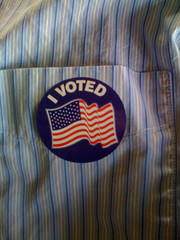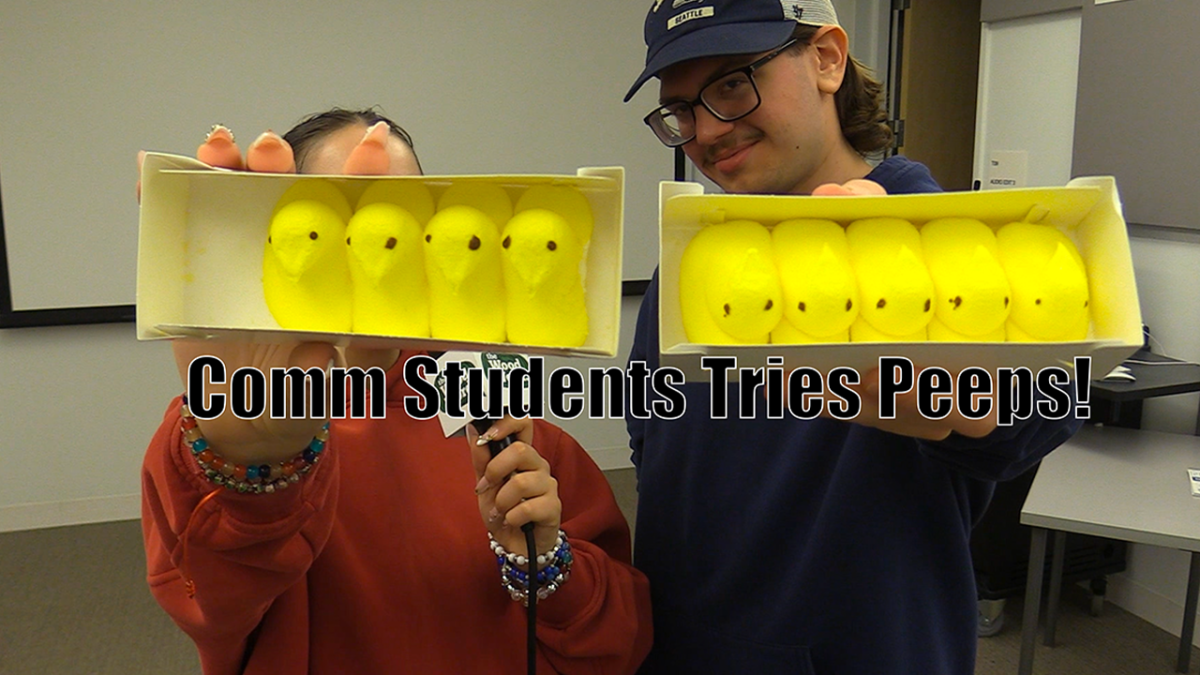
- Image by tastybit via Flickr
By Robert Suski
Staff Writer
It has once again returned, a time where neighbor is against neighbor, friend against friend, brother against brother. No the South has not tried to secede from the Union a second time, my friends, not yet at least. No, once again, we are in an election year. This election year in particular seems to have invigorated the once dormant political spirit in all of us. Voter registration is up, people are active in political discussion and political action groups, and everyone seems to be excited for November 4th.
But maybe you’re not quite as enthusiastic about this year’s presidential elections as others. Maybe you have thoughts about the issues that you don’t feel comfortable sharing with others. Maybe you are living in an area that has traditionally been dominated by pro-life, you register yourself as more pro-choice. Maybe you morally support that unfavorable proposition that others are decrying. Maybe you support a candidate who isn’t popular in your area. As a college student you may feel that you should lean one particular way but you find yourself leaning towards another ideology all together. That’s ok. To quote Douglas Adams, “Don’t panic.” Here are some easy tips to keep in mind for surviving this year’s presidential election and for surviving any election in particular:
- Learn. Say you feel a certain way about a candidate, or issues on the ballot in this upcoming election, but you’re not quite sure. The best thing you can do is learn about both sides of the issue and about all the candidates. There are a plethora of websites readily available for you to help you learn. Some are centered on a specific candidate or issue but there are plenty that are independent towards the issues and candidates and simply give the facts on both sides so you can choose for yourself.
- Keep your cool. Ok, so you have learned about the candidates and the issues at hand and you have made your choice. Just know that you may feel one way about a given subject, there are others that feel differently about how you feel and you may end up engaging with them about the issues and even debating them. The debate may even get heated. That’s ok. Just remember to keep your cool. For whatever reason , an election year brings out a side in people that you rarely see and that side can get angry very quickly. Don’t let a debate or discussion dissolve into a shouting match as that does no good for anyone. Also, being able to shout the loudest and the longest isn’t how one goes about winning arguments.
- Inform, don’t enforce. So you’ve learned the issues and can debate them with others. Now you’ve run into others who are either unsure or have chosen a candidate or support an issue that you are against. The best thing you can do for both of these types of people is to inform them. Unsure voters don’t want you trying to force your opinion down their throats, that’s just going to turn them away and you should know that once someone has picked a specific side or candidate, especially early on in the election year, nothing short of a miracle will get them to switch sides. You can inform them and let them learn about things but don’t try to get them to see things your way as that can lead to a shouting match which, once again, does no good in the long run.
- In the end, your friends will be your friends. To quote the Bible, “Hate the sin, love the sinner.” In this case, you may lean towards one side of the political spectrum but your friends and maybe even your family lean a different way and because of this, you may be afraid to speak out for fear of what they’ll think or say or for fear of losing your friends. As stated before, elections bring out a side of people that you will rarely see and come November 5th, when one side has claimed victory and the other concedes, that side of them will go dormant again and your family will always be your family and your friends will continue to be your friends. So long as both of you feel that your friendship is worth holding onto then you can both continue being friends while supporting different sides in an election.
- You are not alone. During an election year, you may feel surrounded by one group’s political ideology and because of it, you are afraid to get active and decide to go with the status quo. Or if you’re active, you may feel yourself as an island surrounded by a sea of opposition. This is the most important thing for you to know: you are not alone. There are others who share your thoughts, beliefs and values. It may take some searching but you can find groups of people whether they are sponsored clubs on your university or just groups of politically active students, but they are out there and they are a great way to make new friends and meet people who you might not have known that share the same beliefs with you.
Taking these steps, you can bravely endure the coming weeks climaxing to the Election Day on November 4th and show other students who might be nervous about leaning one way or another in the political arena that it is ok for them. They don’t have to be afraid to have their say on the issues either.



![Reblog this post [with Zemanta]](https://img.zemanta.com/reblog_e.png?x-id=02d661d8-da8d-4ec4-b931-c5aff4d1a511)








